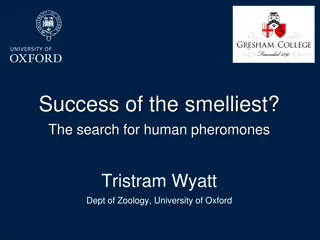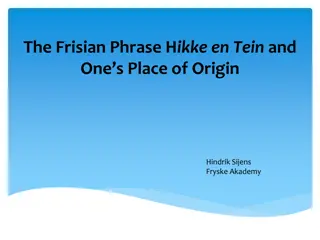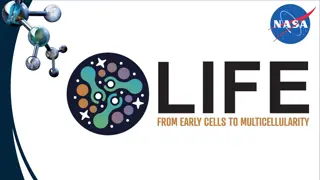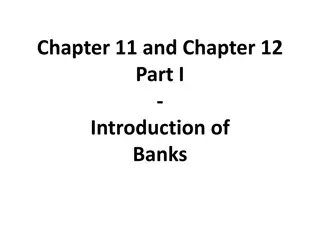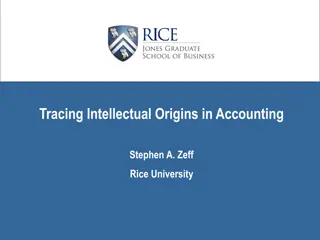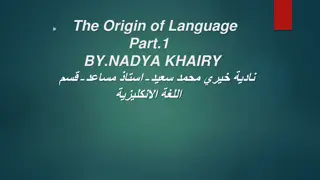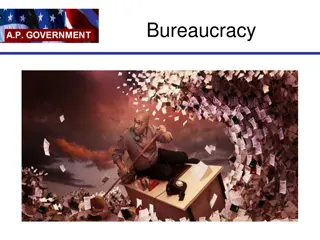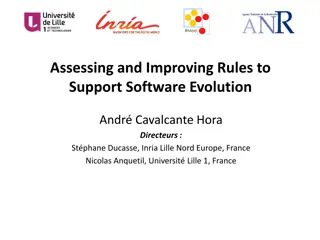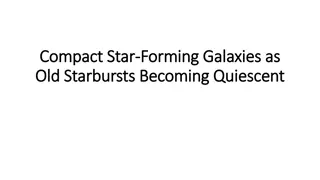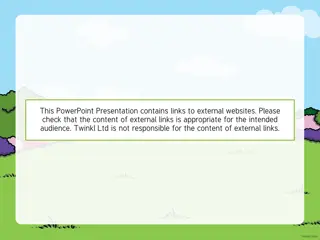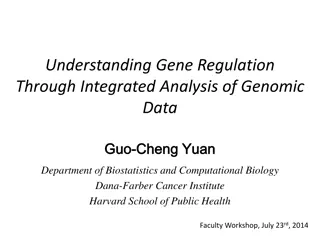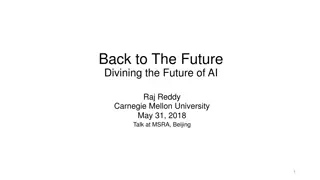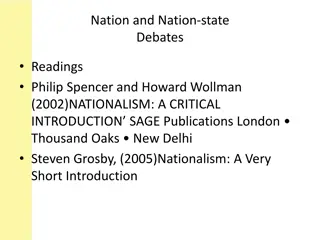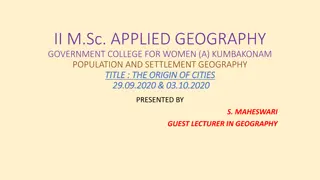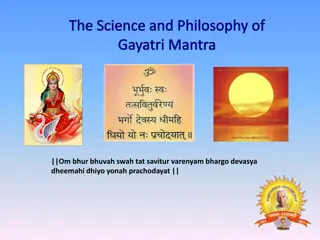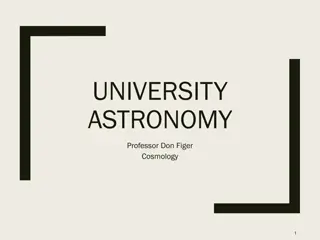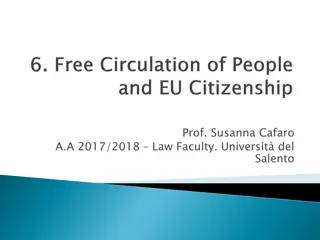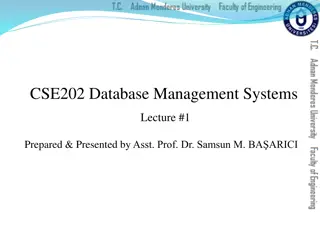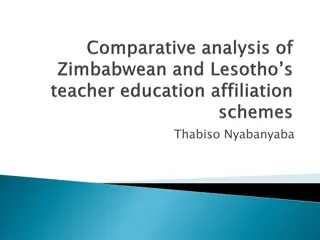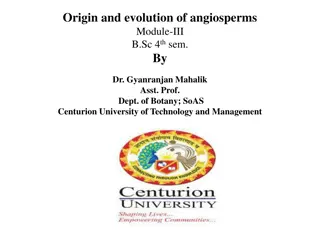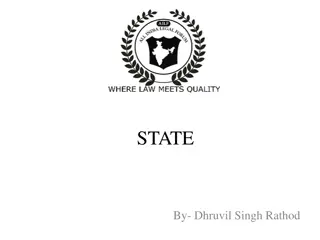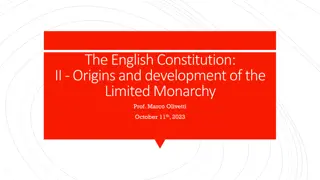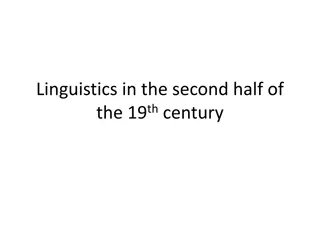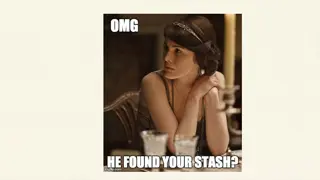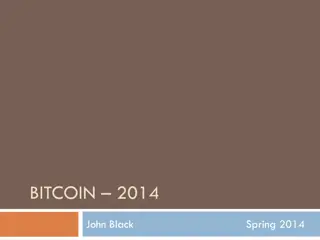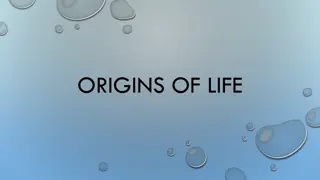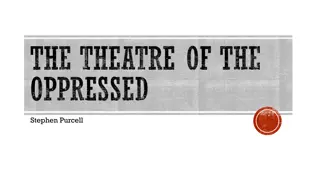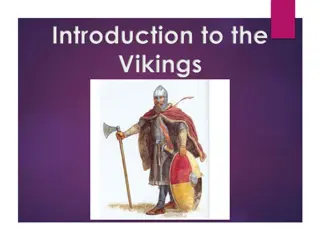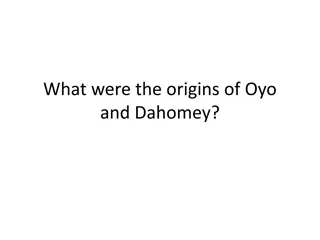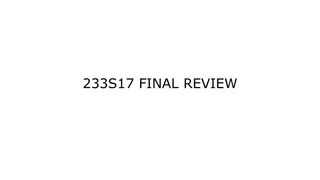Unraveling the Origins and Evolution of "Omnishambles
Delve into the intriguing history of the word "Omnishambles," starting from its roots in Middle English to its resurgence in the political realm. Learn about its connotations, lexical processes, semantic changes, and potential longevity as a term that transcends beyond politics. See how this uniquely coined term has evolved and the possibilities for its future usage.
Download Presentation

Please find below an Image/Link to download the presentation.
The content on the website is provided AS IS for your information and personal use only. It may not be sold, licensed, or shared on other websites without obtaining consent from the author. Download presentation by click this link. If you encounter any issues during the download, it is possible that the publisher has removed the file from their server.
E N D
Presentation Transcript
Meanings Noun (singular)- Omnishambles Definition something that is very badly organised and is ineffective in every possible way. Adjective- Omnishambolic Connotations: - Failure - A mess - Chaos and disorder - Disaster
Origins Noun shambles Prefix omni - Date backs to Middle English - Was the plural noun of shamble - When the meaning changed, it changed to a singular noun. - Derives from Latin Omnis - Traditionally, combines with adjectives. Omnipresent and omniscient
The use of the word First heard in BBC television series The Thick of It in 2009. - A fictional comedy about politics and the government. Until 2012, Omnishambles was barely heard of. Ed Milliband uttered the word when criticising the Conservative government and their proposals. Omnishambles was then adopted by the media
Lexical Processes Prefix omni meaning everywhere or everything is added to the noun shambles to create a new word. Affixation No other lexical process occurred in the buzz words creation. However, it does have an adjective equivalent. OMNISHAMBOLIC
Semantic Change * Omnishambles has had no semantic changes but The words that it is made up of have. - Shamble used to mean stall and shambles was a reference to collection of stalls at a meat market. This is an example of pejoration. The meaning is now a sense of disorder or carnage. In that form it was a plural noun, its semantic change made it into a singular noun. So, conversion. - - - The change in meaning of shambles could also be broadening. Its former use was more specific.
Longevity So far, the word has only been used in political context. No certainty but some possibility that they may develop into a more generic term that intensifies shambles/shambolic. What Ol Ainsworth thinks No reason why it should stay confined to politics. The meaning is not political It would make perfect sense in wider contexts.
P.S. Detailed notes on each slide follow ain t that cool?!
Slide 2: - Omnishambles means something that is very badly organised or ineffective in every possible way. - It is a singular noun. It looks deceiving because of the -s on the end but it cannot be used in the plural with changing it. - The adjective form is omnishambolic. - Connotations of the word include: failure , a mess , chaos , disorder and there probably are many more and individual people can create their own. Words can have slightly different meanings to different people.
Slide 3: - The origins can be found if we split the word up. - Omni comes from the Latin term Omnis which means all - This prefix is usually found with or combines with adjectives such as omnipresent -present everywhere, omniscient -seeing everything. The noun shambles dates back to Middle English. - - Back then it was the plural form of the noun shamble which was a stall. - So, the plural noun shambles has changed over time to become a singular noun. This occurred when the meaning changed. (See semantic change slide.)
Slide 4: - The word omnishambles was first heard on the BBC comedy drama The Thick of It back in 2009. The drama was about how a government worked internally. - The word was uttered when character Malcolm Tucker rants about other character, MP Nicola Murray, and refers to her as an omnishambles. - Until 2012, it was barely heard of apart from that television show. It was brought into the media spotlight when Ed Milliband used it to criticise the current coalition government and their proposals. - He used during Prime Minister Question Time in April 2012 and used to refer to a failure on every level. - When saying it he was referring to widely unpopular budget proposals such as the pasty tax and the freezing of allowances for old aged pensioners and most recent, the double-dip recession. ( words such as pasty gate and granny gate were created-do your own research!) - The media then adopted the term and made it more widely known.
Slide 5: - The process of Affixation- The prefix omni is added to the noun shambles to create a new word. - No other lexical process occurs. - Does have adjective form- omnishambolic
Slide 6: - The word itself has no semantic change but the words that it is made of does. - Shamble - used to mean stall and Shambles was used to refer to a collection of stalls that formed a meat market. - Now the meaning is a state of disorder or carnage . This is an example of pejoration. - It could be argued that this is also an example of conversion because shambles was a plural noun but now exists as a singular noun. - It could also be said that the meaning has broadened as the meaning used to be much more specific referring to something for a particular purpose. E.g. a meat market. However, now it refers to any situation that has chaos or disorder.
Slide 7: - So far, the word has only ever been used in Political contexts. - There is no certainty but some possibility that the meaning and range can expand and be used in wider contexts as an intensifier of shambles/shambolic. - I think that there is no reason for it to be confined to political contexts. The meaning is not political and has potential to be used much more widely. - It would still make sense and keep its meaning in other and wider contexts. * Enjoy!



